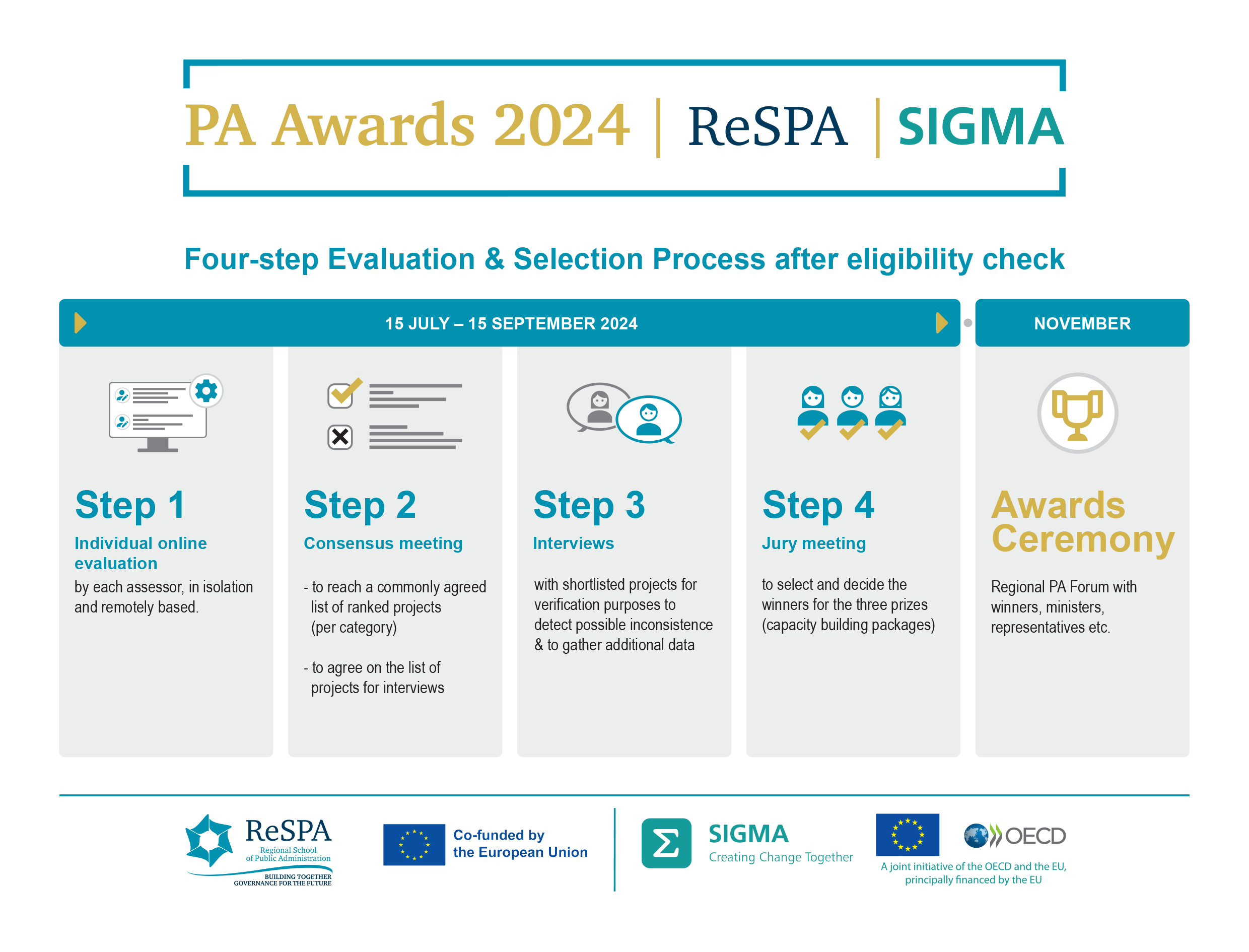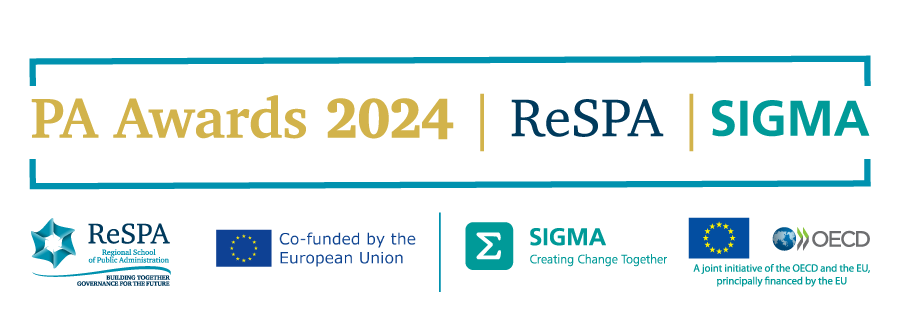PA Awards - Evaluation Guidelines
All stated procedures in this phase refer to the process specified on the selected contest platform https://db.icnm.net/Signup/PAA/2024
Evaluation Criteria
- Effective, Impactful & Tangible Results
- Participatory, Inclusive & Collaborative
- Transparency, Integrity & Accountability
- Sustainability
- Forward-looking & Innovative
- Visibility & Public Concern
- Transferability & Replicability
Criteria |
Criteria description and definitions |
|
1. Effective & Impactful & Tangible Results |
Applicants must show evidence of the transformations and improvements observed through the implementation of the initiative in addressing the identified issues and challenges and the objectives of the initiative. The project/case must be in operation long enough for there to be evidence of its impacts. |
|
2. Participatory & Inclusiveness & Collaborative |
The initiative must be based on an inclusive approach that understands diverse needs, preferences, and challenges faced by citizens, e.g. through the involvement of the beneficiaries and other stakeholders in the design, operation, management, monitoring and evaluation of the initiative. Inclusiveness can also be achieved through the (co)ownership of the project by engaging diverse stakeholders, including citizens, civil society organizations, and private sector partners. |
|
|
3.Transparency & Integrity & Accountability |
The initiative must promote openness and accountability in its processes and/or service delivery. Mechanisms such as citizen feedback channels and public consultation modes must be available. |
|
4.Sustainability |
The initiative must include elements that extend beyond the period of the project implementation or delivery (i.e. after the planned and realised objectives and activities). The initiative must include at least one pitch for new elements in the pipeline, to be advanced further in case the project is being rewarded. |
|
5. Forward-looking & Innovative |
The initiative must introduce future-oriented and new ways of working or delivering services in the public sector. The initiative must show the courage to break new ground to find innovative solutions to meet the changing needs, issues and challenges of citizens in todat’s environment. The initiative must show evidence of putting new ideas into practice and -if applicable- of harnessing the latest technology (e.g. AI, data analytics) as a powerful enabler. The initiative must have the potential to become a flagship example in the field. |
|
6. Visibility & Public Concern |
Users must benefit from the added value of the initiative and see its advantages, hence it must be visible and distinctive (at least in the community of the users). The issues that are tackled in the project must be of interest or importance to the community or the wider public. |
|
7. Transferability & Replicability |
The initiative must be capable of replication in a different setting or context in the Western Balkans and beyond. The application must include an explanation and demonstration of the key factors that ensured the success of the initiative and any lessons learnt from this process that can be transferred. |
|
Four-step Evaluation & Selection Process after eligibility check

The International Jury is composed of ReSPA representatives or/and ReSPA-selected independent experts and OECD/SIGMA representatives or/and experts appointed by them.
If you have any questions related to the rules of the contest, eligibility and other requirements or have any difficulties with the online registration and application tool please contact: pa-awards@respaweb.eu



